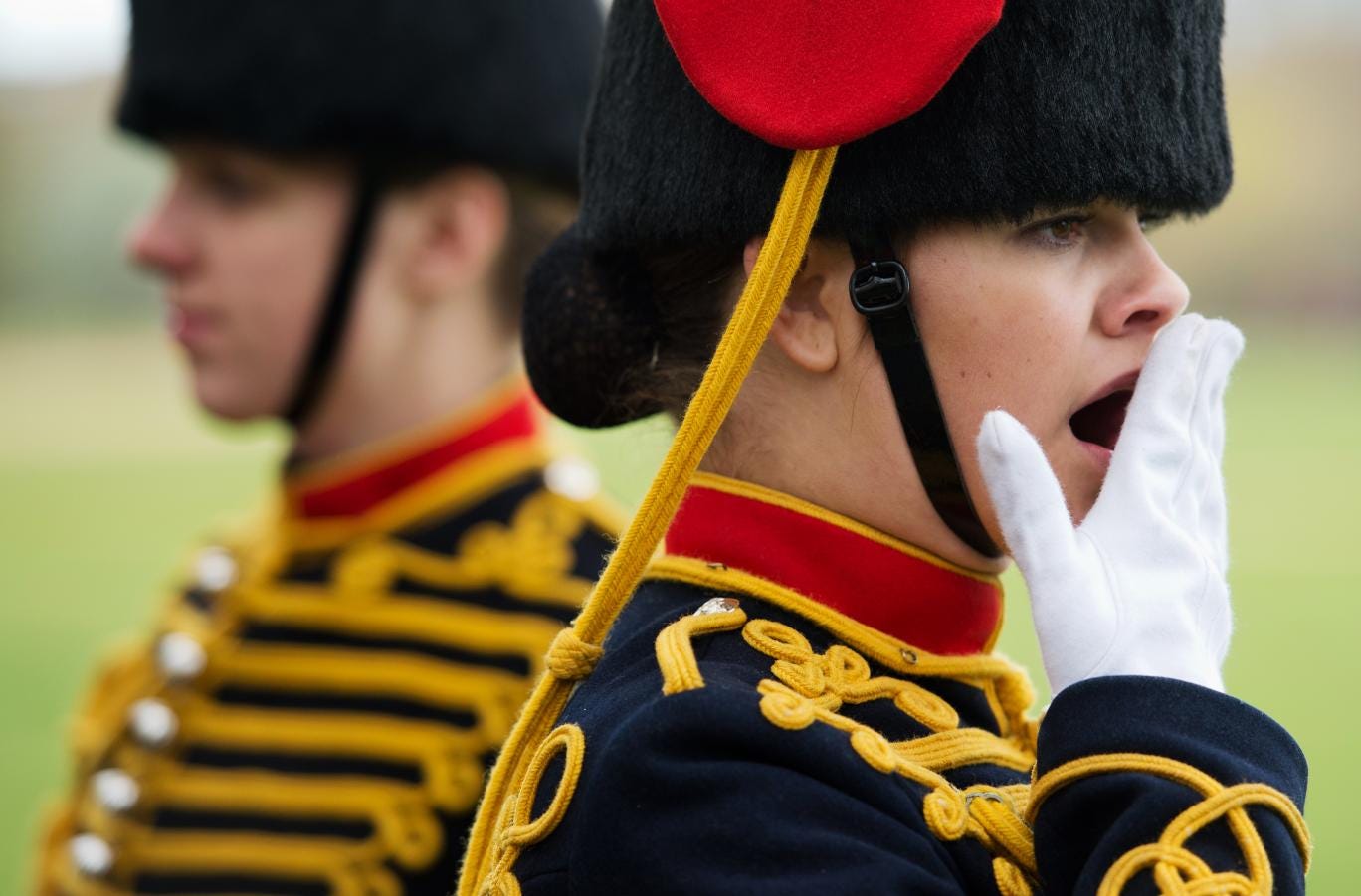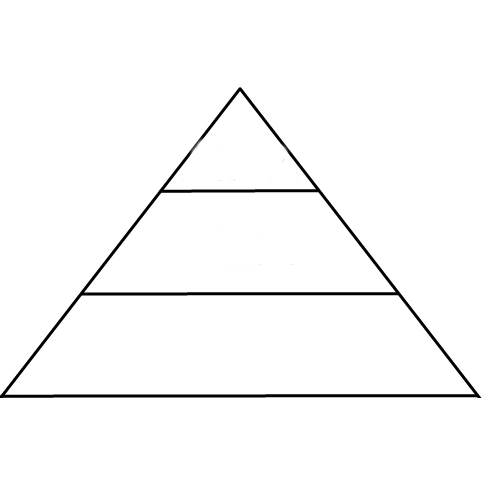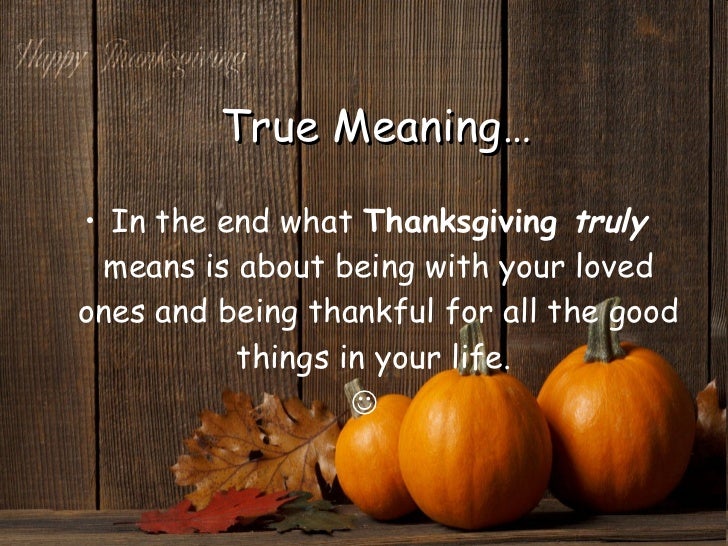Watch this video about Christmas shopping in the UK:
video
martes, 20 de diciembre de 2016
lunes, 19 de diciembre de 2016
viernes, 16 de diciembre de 2016
jueves, 15 de diciembre de 2016
martes, 13 de diciembre de 2016
¡Último día de Kuaderno!
Hoy es el último día de poder usar Kuaderno gratuitamente. ¡Espero que lo habéis disfrutado! No lo hemos contratado como colegio, pero las familias que quieran podrán contratarlo de forma particular. Me imagino que en breve os llegará la información sobre los precios.
Nosotros enviaremos en breve una lista con páginas web gratis de inglés con juegos, ejercicios, listening, etc. para que todos puedan seguir practicando en el ordenador o tablet.
Have fun!
Nosotros enviaremos en breve una lista con páginas web gratis de inglés con juegos, ejercicios, listening, etc. para que todos puedan seguir practicando en el ordenador o tablet.
Have fun!
domingo, 11 de diciembre de 2016
Social Science review questions
On Wednesday you have your last test of the trimestre: Social Science! You must be able to locate and label all of the provinces of Spain (I will give you a list.)
Also you must study about how our government is organised. Here are the review questions to help you. All of the answers are in your book.
Also you must study about how our government is organised. Here are the review questions to help you. All of the answers are in your book.
1. What is the city council formed by?
2. What are the
three bodies of government within an autonomous community?
3. What is the
Statute of Autonomy?
4. Name four
things included in the Statute of Autonomy?
5. How does the Constitution
define Spain? Where does its sovereignty reside? How is it organized?
6. How many
autonomous communities are in Spain?
7. Name the two
autonomous cities.
8. What are the
State Institutions established by the Constitution?
9. What is the
function of the Head of State? Who is
it?
10. Which
institution holds the executive power?
What is its mission? What is it formed by?
11. What is the
Parliament in charge of? What kind of
power do they hold? What are its two chambers?
12. Which
institution holds the judicial power? What are they in charge of? What are the
main courts of justice in Spain?
miércoles, 7 de diciembre de 2016
lunes, 5 de diciembre de 2016
sábado, 3 de diciembre de 2016
Our Christmas cards for Bolton have been sent!
After we had made the cards, I sent them in the post.
Here are just a few:
To learn more about the school in Bolton, visit their webpage here.
Here are just a few:
To learn more about the school in Bolton, visit their webpage here.
viernes, 2 de diciembre de 2016
jueves, 1 de diciembre de 2016
Why do we....
In Natural Science, we are studying about the Nervous System. The brain is such a fascinating organ! Some questions came up in class:
Why do we yawn?

Here's an explanation from KidsHealth
But there have been new studies that suggest that yawning helps us cool down our brains and think more clearly. Read this article for more information!

Why do we yawn?

Here's an explanation from KidsHealth
But there have been new studies that suggest that yawning helps us cool down our brains and think more clearly. Read this article for more information!

Line of succesion to the Spanish throne
In class today some of you were asking about the line of succession to the throne. We learned that the Head of State (executive power) is the King, in this case Felipe VI.
The line of succession is part of the Constitution. You can read it here:
Article 57 of the Spanish Constitution.
Here is a graphic:
The line of succession is part of the Constitution. You can read it here:
Article 57 of the Spanish Constitution.
Here is a graphic:
Image credit (you can read the article)
Some people want to change this article of the Constitution because it discriminates against women. But in order to change the Constitution, a long process must be followed, including a referendum (the people have to vote.) Maybe it will happen someday!
Suponiendo que Felipe
VI propusiera alguna de estas reformas y las fuerzas políticas
atendieran su petición, primero se haría una votación en las Cortes para
aprobar el inicio de la reforma de la Constitución. Posteriormente,
habría que disolver las cámaras y celebrar elecciones. Se volvería a
constituir el Congreso y el Senado y las Cámaras deberían decidir si se
sigue adelante con la reforma y si así fuera deberían discutir y
redactar el nuevo texto. Más tarde, sería imperativo la aprobación de
esa nueva redacción mediante referéndum.
Ver más en: http://www.20minutos.es/noticia/2169263/0/reforma-constitucion/baza-felipe-vi-reto/regenerar-monarquia/#xtor=AD-15&xts=467263
Ver más en: http://www.20minutos.es/noticia/2169263/0/reforma-constitucion/baza-felipe-vi-reto/regenerar-monarquia/#xtor=AD-15&xts=467263
miércoles, 30 de noviembre de 2016
Workbook p. 34
Exercise 1:
--The rider told the horse to jump.
--The teacher asked the children to look at the board.
--The boy asked his mother to buy a cake.
--The farmer told the dog to sit down.
Exercise 2:
--The man told the boy not to climb the ladder.
--The teacher asked the girls not to run.
--The woman told the boy not to shout.
--The woman asked the girl not to pick the flowers.
Exercise 3:
--The teacher told everyone to stand up.
--The man told the boys not to swim in the river.
--Mum asked the children to play quietly.
--Dad told John not to be late.
--Lucy asked Meg not to be angry.
--Mum asked Tom to wash the dishes.
A real bear footprint-- and your last English test of the trimestre
Here is the picture my friend took while she was walking in the mountains over the weekend. It is from a black bear. Luckily she didn't see the bear!

Here is an article about what you should do if you meet a bear.
The last English test of the trimestre will be on Wednesday, 7th December.
It will include some things from the last exam:
--Present continuous, sentences and questions.
--Reported speech and direct speech
And some things from Units 3 and 4:
--Past perfect: had + past participle click here
--Question tags (isn't it/he/she? is it/he/she? aren't you/they/we? are you/they/we?
wasn't it/he/she? was it/he/she? weren't you/they/we? were you/they/we?)
--Asked someone to/ told someone to...
--And/so/but/because (click here)
And a Listening exercise, a writing exercise.
Very important! Review your irregular verbs!!!!

Here is an article about what you should do if you meet a bear.
The last English test of the trimestre will be on Wednesday, 7th December.
It will include some things from the last exam:
--Present continuous, sentences and questions.
--Reported speech and direct speech
And some things from Units 3 and 4:
--Past perfect: had + past participle click here
--Question tags (isn't it/he/she? is it/he/she? aren't you/they/we? are you/they/we?
wasn't it/he/she? was it/he/she? weren't you/they/we? were you/they/we?)
--Asked someone to/ told someone to...
--And/so/but/because (click here)
And a Listening exercise, a writing exercise.
Very important! Review your irregular verbs!!!!
martes, 29 de noviembre de 2016
Wayne Thiebaud's delicious art!
Wayne Thiebaud is a pop artist who is famous for his paintings of delicious food. He uses a lot of repetition in his work.
He also uses the Elements of Art. For example, Form.
Form means creating an object to be or look three-dimensional. It has height, length, width, and depth. Here are some three-dimensional forms: pyramid, cylinder, sphere, cube.

He also uses the Elements of Art. For example, Form.
Form means creating an object to be or look three-dimensional. It has height, length, width, and depth. Here are some three-dimensional forms: pyramid, cylinder, sphere, cube.

Waynethiebaud2 from George Kelly Elementary
We are going to use repetition in our first project inspired by Thiebaud's art.
You can also play this game:
National Gallery of Art Thiebaud Cake Interactive
For your art project you are going to draw something four times. It can be an object, food, or whatever you want. Think about the colours you are going to use.
Here is an example by another Pop artist, Andy Warhol.

We are going to use repetition in our first project inspired by Thiebaud's art.
You can also play this game:
National Gallery of Art Thiebaud Cake Interactive
For your art project you are going to draw something four times. It can be an object, food, or whatever you want. Think about the colours you are going to use.
Here is an example by another Pop artist, Andy Warhol.

lunes, 28 de noviembre de 2016
Giving a response
We are learning about body systems in Natural Science. First we are going to study how we receive information, process information, and give a response.
Here is a nice summary of the process.
Here is a game about the Nervous System.


Here is a nice summary of the process.
Here is a game about the Nervous System.


sábado, 26 de noviembre de 2016
Autonomous communities and provinces
We will have the last Social Science test of the trimestre on Wednesday, 14th of December. It will be on Unit 6: Spain's Organisation.
Half of the test grade will be to locate and label on a map the Autonomous Communities and provinces in Spain. You can practise using the activities in this link:
Interactive Maps
(This may not work on a tablet.)

Don't forget the Autonomous cities, Ceuta and Melilla!
It can be an easy way to improve your Social Science grade, but you should start to study now!
Half of the test grade will be to locate and label on a map the Autonomous Communities and provinces in Spain. You can practise using the activities in this link:
Interactive Maps
(This may not work on a tablet.)

Don't forget the Autonomous cities, Ceuta and Melilla!
It can be an easy way to improve your Social Science grade, but you should start to study now!
jueves, 24 de noviembre de 2016
martes, 22 de noviembre de 2016
20th Century Spain
Here is a Power Point to help you study for your test.
20th century Spain from Kathleen Marcy
Here is a link to a page that has many activities (in Spanish) to help you understand or to get morer information.
Good luck!
Here is a link to a page that has many activities (in Spanish) to help you understand or to get morer information.
Good luck!
sábado, 12 de noviembre de 2016
Resources to help you study about Magnetism and Electricity
Our test is coming up on Thursday. Here are some resources to help you study!
In this presentation, look at slides 1-18:
Conductors and insulators from Mr. M
Electrical Conductors And Insulators from xnpsp5
Finally, a slideshow with everything you need to know for the test!
In this presentation, look at slides 1-18:
Conductors and insulators from Mr. M
Electrical Conductors And Insulators from xnpsp5
Finally, a slideshow with everything you need to know for the test!
viernes, 11 de noviembre de 2016
An extra credit project
Extra credit activity for Natural Science:
For an extra point on your exam, you can do one extra
credit activity.
1)
Make
your own compass
--Watch the video on the blog
--Make your own compass
--Take a digital photo or video
--Explain how it works. (video or written)
--If you don’t have a camera, you can draw a picture
of the compass and label the parts. Write your explanation.
2)
Magnetic
or not?
--Find 15 objects and test whether or not they are
magnetic. At least 10 of them must be made of metal. You can use different coins.
--Make a video (optional—not necessary)
--Make a chart:
Name of object
|
What is it made of?
|
Is it magnetic?
|
USA quarter (25 cent coin)
|
Mostly copper
|
|
spoon
|
steel
|
|
Write a conclusion: Objects made of ………………………….. are
magnetic. Examples:
- You must hand in the activity on or before Thursday, 17th November.
- Your written work must be neat and with good presentation.
- You may work individually or with a partner (three people maximum).
- If you make a video or take digital pictures, you can send your project to me by email at:
And--so--but--because
We use conjunctions (linking words) to join two sentences. Four common conjunctions are "and", "so", "but", "because".
We ran to class, but we were still late.
We ran to class because the bell was going to ring.
We ran to class, so we arrived on time.
We ran to class, and sat down quickly.
Let's practice!
Quiz
Quiz 2
Quiz 3
Quiz 4
We ran to class, but we were still late.
We ran to class because the bell was going to ring.
We ran to class, so we arrived on time.
We ran to class, and sat down quickly.
Let's practice!
Quiz
Quiz 2
Quiz 3
Quiz 4
jueves, 10 de noviembre de 2016
Make your own compass!
Here is another experiment you can do. You can create your own compass!
You can also use a plastic bottle cap.
You can also use a plastic bottle cap.
miércoles, 9 de noviembre de 2016
Past perfect
Yesterday we started to learn about the past perfect tense in English. We use it to talk about two events that happened at different times in the past.
The form is:
The form is:
had + past participle
Here is the presentation we watched in class:
martes, 8 de noviembre de 2016
A science experiment!
We are going to do an experiment on Friday-- we are going to create electromagnets! For the experiment you will need:
--a battery (pila de petaca):
 or
or 
--50-100 cm of insulated cable
--a long iron nail
Here is a picture:
--a battery (pila de petaca):
 or
or 
--50-100 cm of insulated cable
--a long iron nail
--metal paper clips
You can read about the experiment on page 76 of your book.
lunes, 7 de noviembre de 2016
Gaudí and his "trencadís" style
Antoni Gaudí was a Spanish artist and architect who lived and worked in the 19th and 20th centuries (he was born in 1852 and died in 1926.) One of the techniques he used was "trencadís"-- a mosaic form using broken ceramic tiles to add colour and shapes to a design.
Here are some examples of his work:

A lizard from Parque Guell in Barcelona


Benches in Parque Guell
We are going to take inspriration from this technique for our next art project!
Here are some examples of his work:

A lizard from Parque Guell in Barcelona


Benches in Parque Guell
We are going to take inspriration from this technique for our next art project!
viernes, 4 de noviembre de 2016
martes, 25 de octubre de 2016
lunes, 24 de octubre de 2016
English Test
You will have your English test on November 3rd.
It will be on:
Reported Speech de Miguel Dias

It will be on:
- Present continuous form to talk about future plans. (Review here)
- What a/ What an/ What exclamations (Review in your book and workbook)
- Reported speech (See presentation below)
- Too/ too much/ very (Review here)
- Time expressions (See below)
- A listening exercise
- A reading comprehension exercise
- A writing exercise
Reported Speech de Miguel Dias
Time expressions with prepositions:
in the
morning in the afternoon in the evening
at
night at 6 o’ clock on Friday
in
2016 in July in the summer
in two
weeks in five minutes in the future
Social Science Test Review
Here are some questions to help you study. Make sure you can answer all of them!

1. Explain these terms and say during which reign they
appeared (who was king or queen at that time).
--guerillas
--political alternation
--caciques
--Salic Law
--Crisis of 98
--Carlist wars (First and Second)
2. For each part of the pyramid, write the name of the
capitalist class and say who belonged to it.

3. What was the quality of life like for the majority
of the population in the 19th century? Why?
4. Why was the 19th century important for
the press?
5. What changes in education did the Moyano Law bring?
6. How did the Spanish War of Independence begin? Who fought in this war?
7. Name and describe the cultural movements of the 19th
century.
8. Why and when was the National Bank of Spain
founded?
9. Name three things that slowed economic development
in the 19th century.
13. What was the main economic activity in the 19th
century?
14. Which king was influenced by Cánovas del Castillo? Which Constitution was written
at that time?
15. During which period did Amadeo I reign?
16. Who was king (or queen) when the American colonies
gained independence?
17. Which king allowed Napoleon to pass through Spain
to conquer Portugal? What happened
instead?
18. Write everything you know about the Constitution
of 1812.
Suscribirse a:
Comentarios (Atom)















